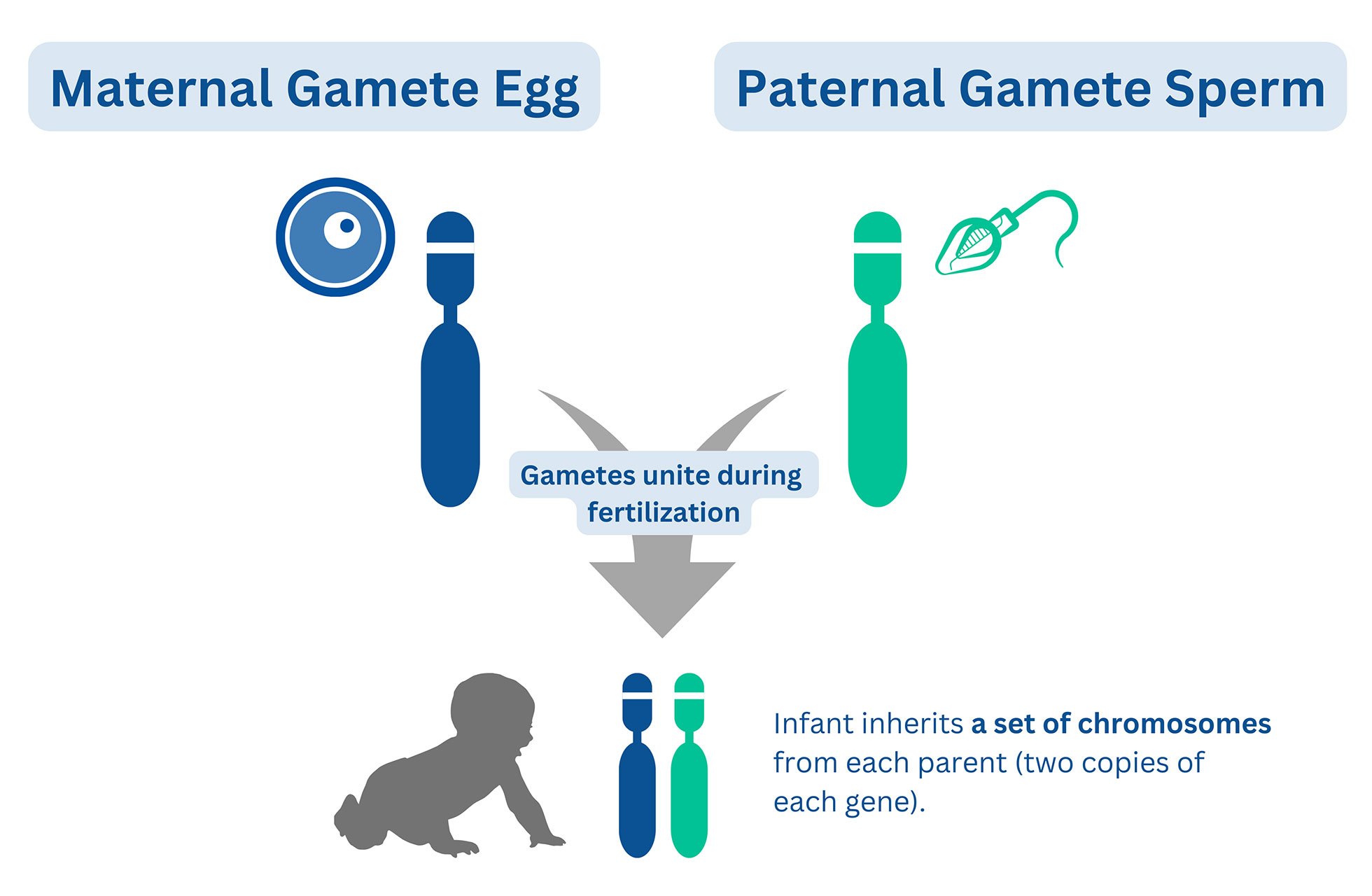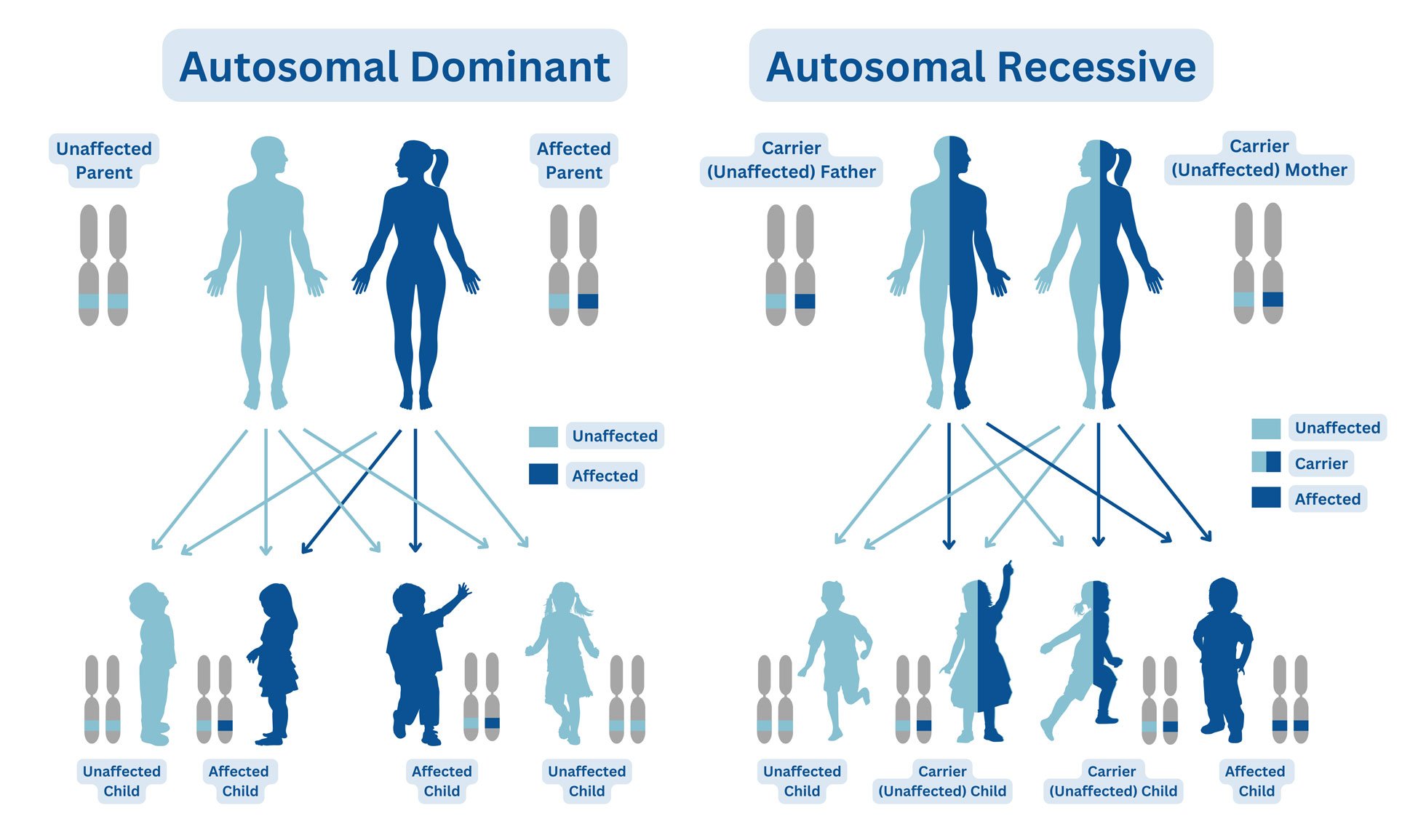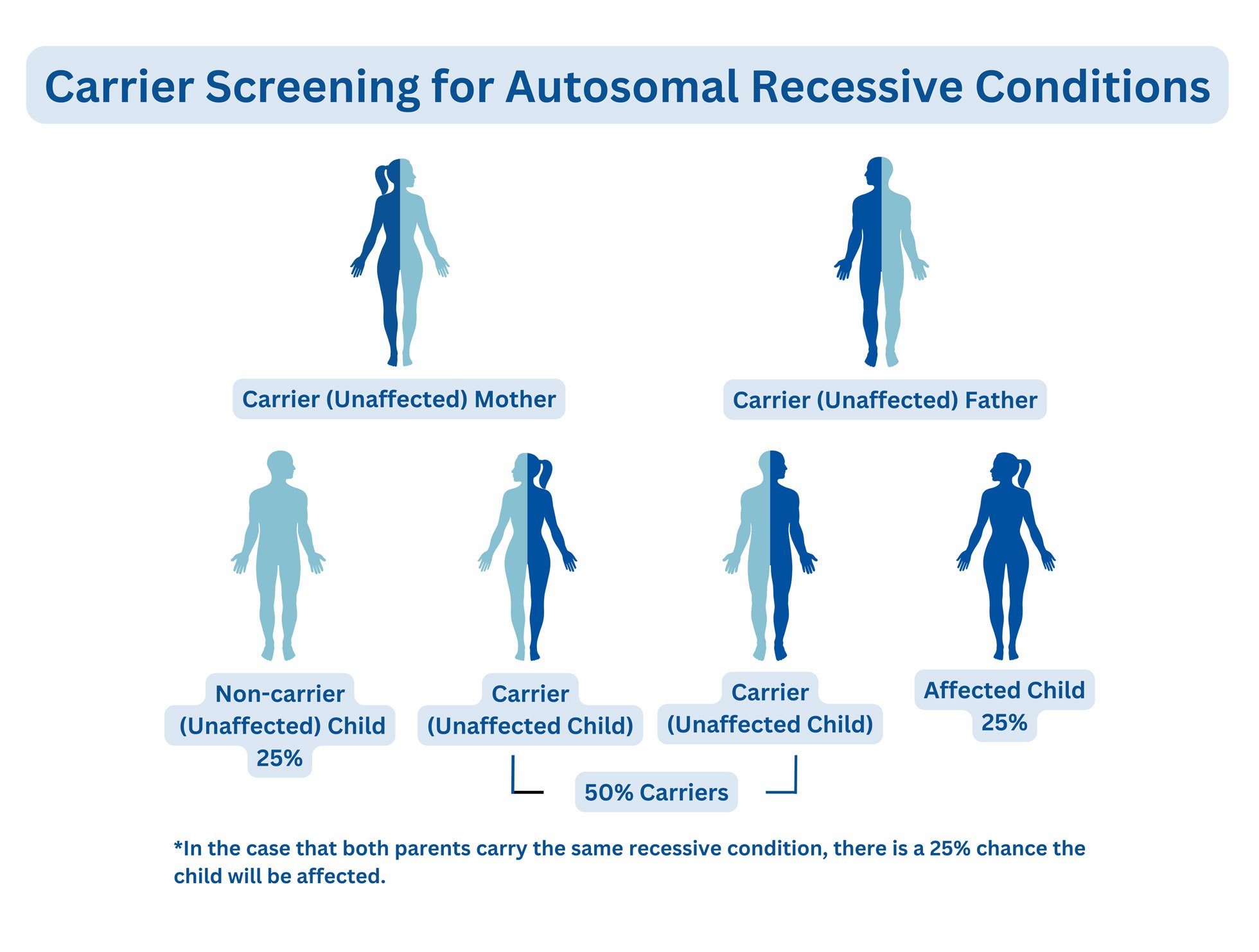Useful Genetic Terminology & Resources
The following questions and answers can help provide patients and their families with basic knowledge and understanding of the complex topic of genetics and inheritable diseases.
A. Yes. Each human cell contains 23 pairs of chromosomes, with one copy of each chromosome inherited from each parent. Each chromosome contains numerous genes that carry the genetic information that determines our traits, such as eye color, height, and susceptibility to diseases. These two copies of each gene may have identical or different sequences, and the combination of these copies contributes to individual variations in traits and susceptibility to diseases. The exception to this rule are the sex chromosomes, where males have one X and one Y chromosome, while females have two X chromosomes.

A. Autosomal dominant inheritance is a type of genetic inheritance in which a single copy of a mutated gene from one parent is sufficient to cause the disease in their offspring. This means that if one parent has the mutated gene, there is a 50% chance that their children will inherit the disease. The mutated gene is located on one of the 22 pairs of autosomal chromosomes, rather than the sex chromosomes. The disease usually manifests in every generation of an affected family, and both males and females are equally likely to inherit and pass on the mutation. Examples of diseases that follow an autosomal dominant inheritance pattern include Huntington’s disease, Marfan syndrome, and neurofibromatosis.

A. Autosomal recessive inheritance is a pattern of genetic inheritance where a person must inherit two copies of a mutated gene (one from each parent) to develop the disease. This means that if both parents carry one copy of the mutated gene and are unaffected, there is a 25% chance with each pregnancy that their child will inherit two copies of the mutated gene and develop the disease. The disease typically does not appear in every generation of a family and can skip generations. Both males and females are equally likely to inherit and pass on the mutation. Examples of diseases that follow an autosomal recessive inheritance pattern include sickle cell anemia, cystic fibrosis, and Tay-Sachs disease.

A. Carrier screening is a genetic test that can be done to determine if an individual has a gene mutation for a particular genetic disorder. The test is typically recommended for individuals who have a family history of a genetic disorder or who belong to a population with a higher prevalence of certain genetic conditions. Carrier screening can also help couples make informed decisions about family planning, take appropriate steps to manage their risks, and seek appropriate prenatal care if necessary. The test involves analyzing a sample of blood or saliva to detect whether an individual carries a single mutated gene that may be passed on to their offspring. Carriers of a genetic disorder usually do not show any symptoms. But if both parents are carriers of the same genetic disorder, there is a risk that their child will inherit two copies of the mutated gene and develop the disorder.

A. A variant of uncertain significance, or VUS, is a genetic mutation detected in a person’s DNA, but its clinical significance is unclear. A VUS may or may not be associated with a particular disease or condition, and further research is needed to understand its potential impact. VUS can be a source of anxiety and uncertainty for individuals and their families, as they may not know how to interpret the test results or what actions to take. In some cases, additional testing or genetic counseling may be recommended to provide more clarity and guidance. It’s important to note that a VUS does not necessarily mean that a person will develop a genetic disorder or pass it on to their offspring, but it does indicate the need for ongoing monitoring and evaluation.
- National Organization for Rare Disorders (NORD)
- FORCE — Facing Our Risk of Cancer Empowered
- Genetic Alliance
- March of Dimes
- GeneReviews
- Genetics Home Reference — National Institutes of Health
- National Society of Genetic Counselors

